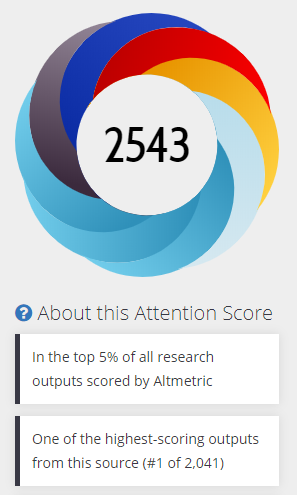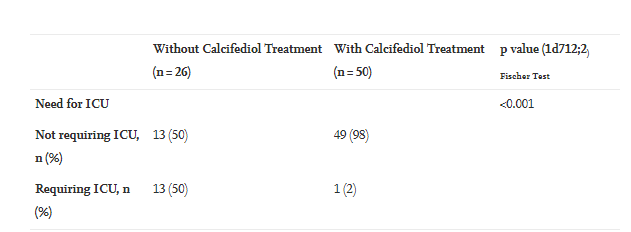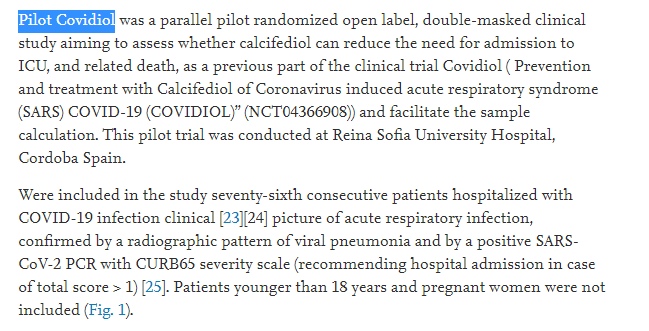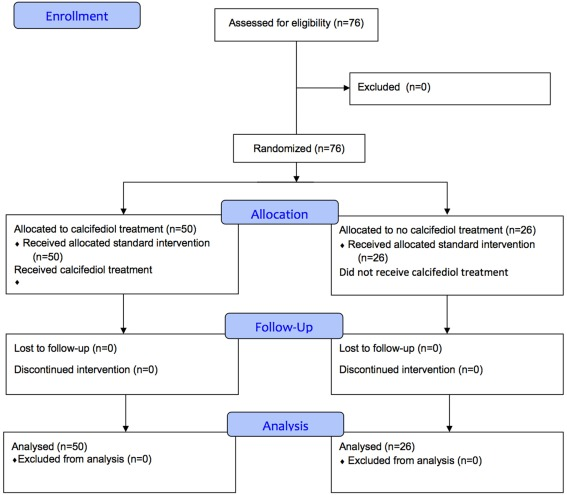I thought I'd look at this paper in a little bit more detail because, well, there are some pretty big issues
Let's do some peer-review on twitter! https://twitter.com/GidMK/status/1303539430024568832
Let's do some peer-review on twitter! https://twitter.com/GidMK/status/1303539430024568832
The study is here: https://www.sciencedirect.com/science/article/pii/S0960076020302764?via%3Dihub#tbl0015
Already up to an Altmetric of 2,543, the highest ever for the journal it's in
Already up to an Altmetric of 2,543, the highest ever for the journal it's in
The authors randomly assigned people to either get treatment as usual or calcifediol, which is a product of vitamin D metabolism, and then checked how many went into ICU or died in the two groups
The findings were, to put it bluntly, astonishing
Of the intervention group, only 1/50 patients went to ICU
Of the control, 13/50 went to ICU, 2 of whom died
So calcifediol reduced ICU admission by ~90%!
Of the intervention group, only 1/50 patients went to ICU
Of the control, 13/50 went to ICU, 2 of whom died
So calcifediol reduced ICU admission by ~90%!
However, it doesn't take long to see some major caveats to this research
Firstly, it was not blinded. Treating clinicians - who were the ones in charge of sending a patient to ICU - knew who was getting the treatment and who wasn't
Firstly, it was not blinded. Treating clinicians - who were the ones in charge of sending a patient to ICU - knew who was getting the treatment and who wasn't
There was also no placebo control, again introducing a potential source of bias into the arrangement
On top of this, the sample was very small (n=76)
On top of this, the sample was very small (n=76)
Now, all of this is fine, because you see this was a PILOT trial
The actual big research project is ongoing, and will involve >10x as many people!
The actual big research project is ongoing, and will involve >10x as many people!
But there are some issues in the study that don't have anything to do with the pilot nature
For example, this flow diagram
For example, this flow diagram
This diagram implies that of the patients who were screened for the study (PCR+, pneumonia on radiograph, clinical infection) 100% were enrolled
100% of those patients were randomized
100% took the treatment as assigned
100% were followed up until the end of the study
100% of those patients were randomized
100% took the treatment as assigned
100% were followed up until the end of the study
Now, I don't know if that is entirely unheard of, but thus far I have never seen such perfect numbers. Even other in-hospital trials of drugs for COVID-19 have a handful of patients drop out (or at least 1 patient screened who was not eligible!)
Also, the control group had higher levels of hypertension and diabetes compared to the intervention group. This is acknowledged by the authors as a limitation, and is definitely not ideal when making conclusions based on the results
It is entirely possible - perhaps even likely - that one of these potential sources of bias influenced the eventual results. A study like this would be rated as at a "very high" risk of bias in most formal assessments
I think most scientists would just read this as a tiny pilot study, and await better data
That's certainly my opinion - there are too many potential sources of bias here to make any solid conclusions
That's certainly my opinion - there are too many potential sources of bias here to make any solid conclusions
Unfortunately, it is the age of COVID-19, so this study has instead gone viral on social media and is being used to recommend that people take vitamin D supplements
Such is the way of 2020
Such is the way of 2020
I should also mention that this is not in any way an indictment of the study's authors. This was clearly meant to be a pilot study, and should be read as such
It is just a shame that people have instead sensationalized the research
It is just a shame that people have instead sensationalized the research

 Read on Twitter
Read on Twitter






